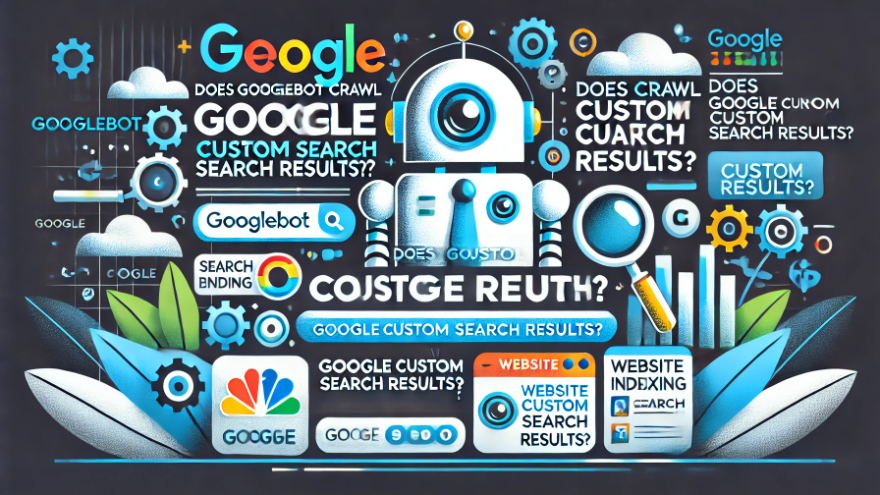Googlebot does not typically crawl search results pages generated by Google Custom Search (CSE) as they contain duplicate or thin content that does not add value. These pages can also create infinite URL variations, wasting crawl budget and affecting SEO. To prevent indexing, website owners can use methods such as robots.txt, meta robots tags, canonical tags, and Google Search Console configurations. Implementing these measures ensures that Googlebot focuses on crawling and indexing valuable, unique content that enhances search engine visibility.

Many website owners wonder whether Googlebot, the web crawler used by Google to index pages, crawls their Google Custom Search (CSE) results. The short answer is no — Googlebot does not typically crawl search results pages generated by Google Custom Search. Instead, it focuses on crawling the actual content of your website.
Google's primary goal is to index unique, valuable content that provides a great user experience. Search result pages, including those generated by Google Custom Search, are generally not considered valuable content for indexing due to the following reasons:
If you want to ensure that Google does not crawl or index your Google Custom Search result pages, you can take the following preventive measures:
robots.txt FileYou can prevent search engines from accessing search results pages by adding the following directive to your robots.txt file:
User-agent: *linebreakmarkerDisallow: /searchReplace /search with the URL path used by your Google Custom Search results page.
Adding a noindex directive to the search results page will instruct Googlebot not to index it. Place the following meta tag within the <head> section of the page:
<meta name="robots" content="noindex, nofollow">This will ensure that search engines neither index the page nor follow any links on it.
If your search result pages are necessary but you want to avoid duplicate content issues, consider using canonical tags to point to the most relevant pages. This can be done by adding the following tag within the <head> section:
<link rel="canonical" href="https://www.example.com/original-page" />You can also specify URL parameters in Google Search Console to indicate that certain pages should not be crawled, preventing search results pages from being indexed.
In summary, Googlebot does not crawl Google Custom Search result pages by default, as they do not provide unique content and can negatively impact crawl efficiency. However, to ensure such pages are not indexed, it is advisable to implement preventive measures such as using robots.txt, meta tags, or canonical tags.
By following these best practices, you can ensure that Google focuses on indexing the most valuable content on your site, improving your search engine visibility and performance.